Today we live in a society, which can not imagine life without expressing views on social media. Probably it does have certain advantages. Nevertheless, many participants of active discussions have already forgotten or do not even know about the developments, which unfolded in Armenia 5, 10 or 15 years ago.
To fill the gap Mediamax presents 5/10/15 project, which introduce developments in Armenia 5, 10 and 15 years ago.
• 15 YEARS AGO: JUNE 1-6, 2006
Tigran Torosyan becomes parliament speaker
On June 1, 50-year-old Tigran Torosyan was elected speaker of the parliament of Armenia.
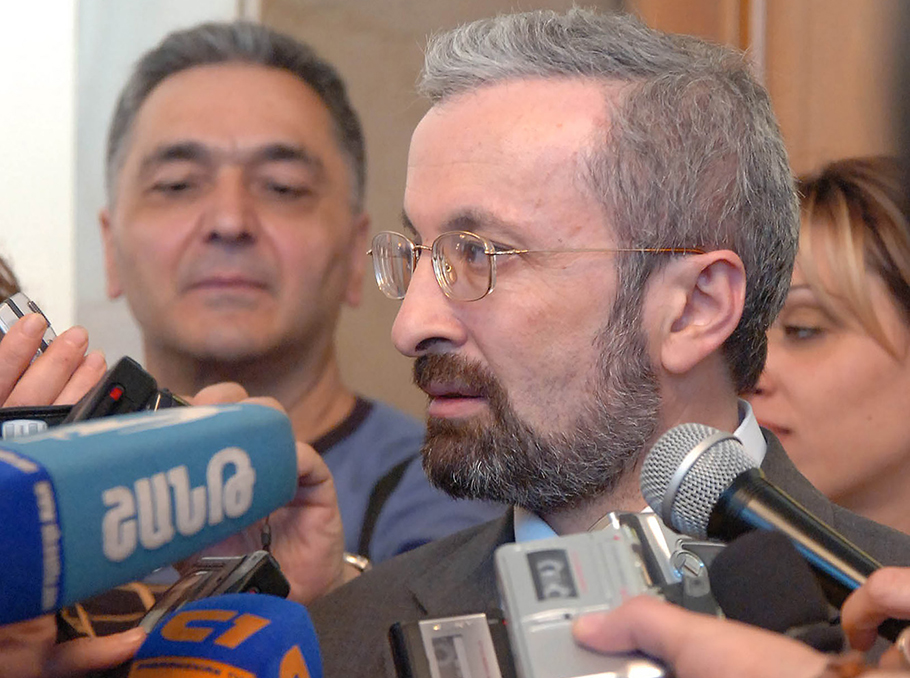
Prior to the election, Torosyan served as the parliament Vice Speaker and the Head of Armenia’s delegation to the PACE.
The need for “full integration” of NKR
At the Summit of the Black Sea Forum for Dialogue and Partnership in Bucharest on June 5, Armenian President Robert Kocharyan said: “Now for fifteen years the Nagorno-Karabakh Republic (NKR) continues to prove its right for independence by own achievements in effective statecraft.”
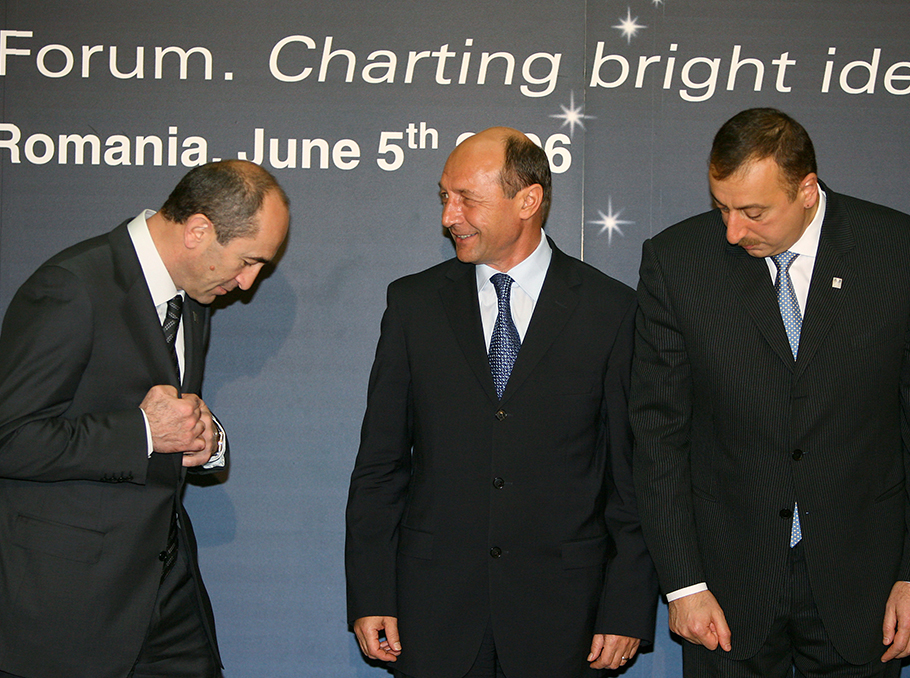
Photo: REUTERS
He also remarked:
“The people of Nagorno-Karabakh have implemented in practice the right for self-determination in line with the requirements of international law. Results of the referendum on independence were later defended in the war forced on that people. These events developed in the timeframe of global changes, related to the collapse of the Soviet Empire. That situation is classical for cases of self-determination through secession. A whole generation grew up there, which watches itself as possessors and defenders of that statehood. We believe that there is a need for effective efforts for a full-scale integration of the Republic in the international society.”
Yerevan welcomes the winners
On the night from June 5 to 6 Yerevan solemnly welcomed the Armenian National Chess Team that won the World Chess Olympic Games in Turin.
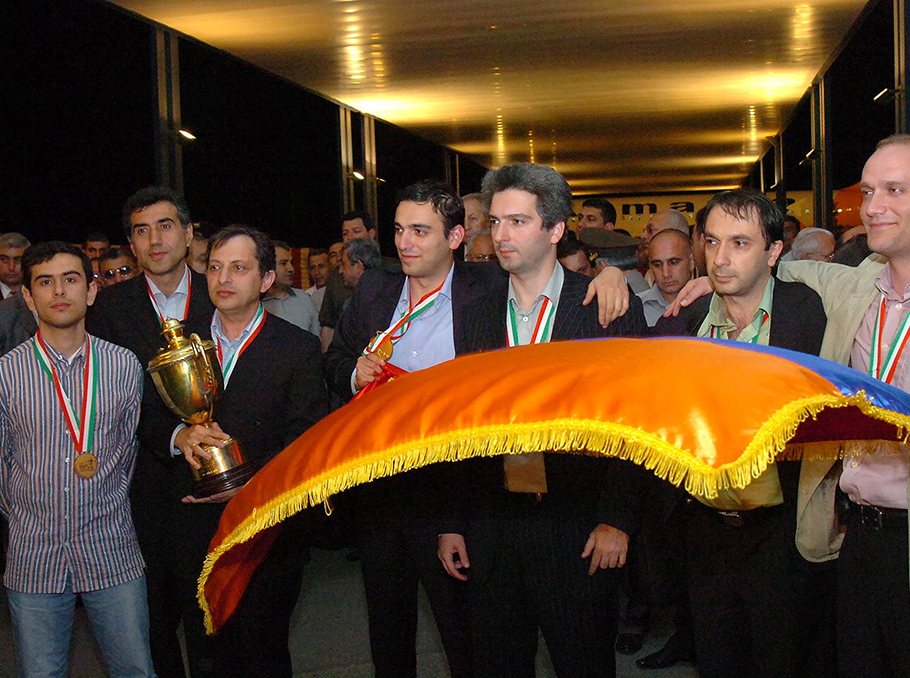
Armenian National Assembly Chairman Tigran Torosyan, Prime Minister Andranik Margaryan, Head of the Armenian Presidential Administration Armen Gevorgyan arrived to the airport to welcome the golden medalists.
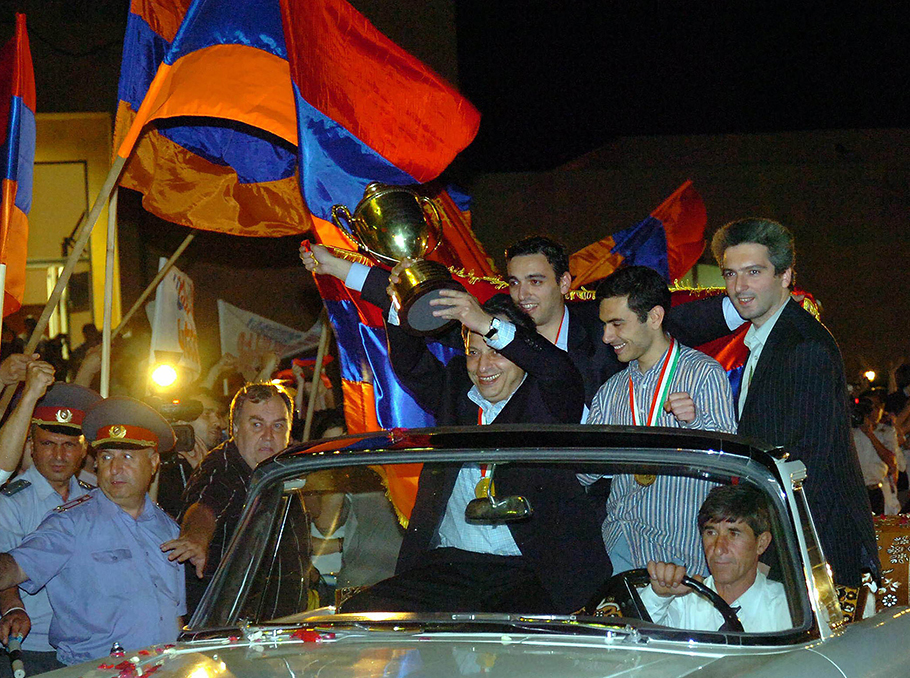
From the airport, the team went to the Freedom Square, where several thousands of people were waiting for them although it was late at night. The chess players were greeted by warm and loud applause.
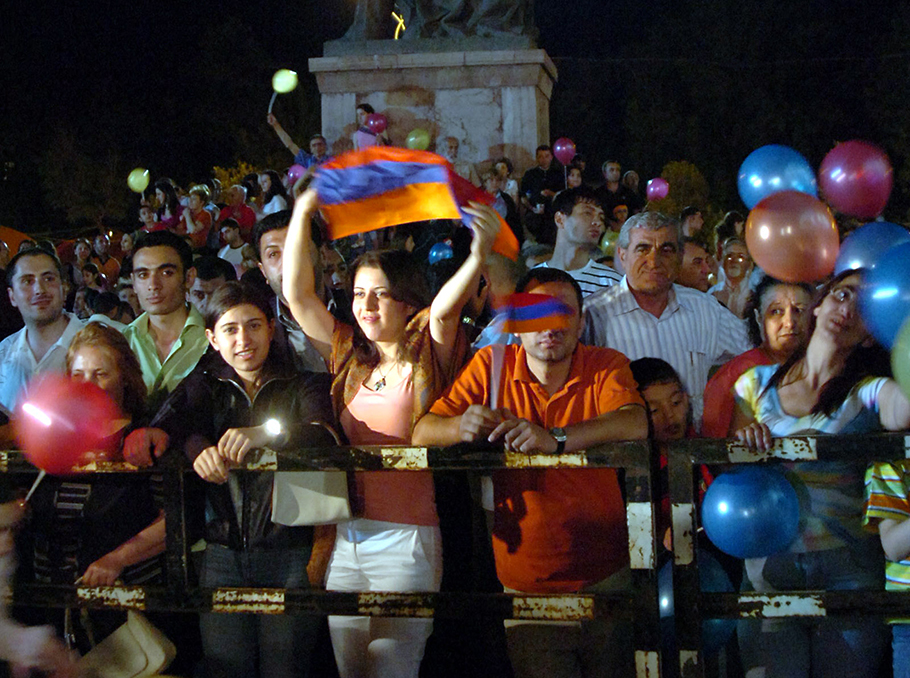
For the first time in the history, the Armenian men’s chess team won golden medals of Chess Olympic Games.
Armenian, Azerbaijani Presidents fail to agree again
Armenian Foreign Minister Vartan Oskanian said that during the talks in Bucharest, the Presidents of Armenia and Azerbaijan again failed to agree over the issue, which was the reason for the failure of Rambouillet talks in February 2006.
“The presidents failed to agree over this issue even though after Rambouillet the mediators have proposed a number of new approaches and formulations to the sides,” said Oskanian.
On June 6, the OSCE Minsk Group Co-Chairs described the peaceful resolution of the Nagorno-Karabakh conflict “imperative and achievable”.
“The Co-Chairs remain of the opinion that a peaceful resolution is both imperative and achievable, and that 2006 remains the favorable “window” to achieve such progress. The Co-Chairs continue to believe that the basic principles they have identified and proposed to the parties for settlement of the conflict offer an equitable basis for such a resolution. They regret that the parties have not yet come to agreement on these principles,” they said in a statement.
• 10 YEARS AGO: JUNE 1-6, 2011
The talks between ANC and authorities
On June 3 the Armenian National Congress (ANC) approved the composition of the delegation to conduct a dialogue with the authorities.
Coordinator of the ANC Central Office Levon Zurabyan headed the delegation, which featured former National Security Council Chief David Shakhnazaryan, former Yerevan Mayor Vahagn Khachatryan, ANC Deputy Chairman of the Board Samvel Abrahamyan, and Secretary of the Board of People’s Party of Armenia Felix Khachatryan.
A day earlier, Haykakan Zhamanak newspaper’s Editor-in-Chief Nikol Pashinyan said that over the past three years the stance of ANC had been gradually toughening and the stance of the authorities had been relenting.
According to him, “the demand for extraordinary presidential and parliamentary elections is on the agenda and the issue of Serzh Sargsyan’s resignation holds valid.”
“If the people’s demand for snap elections can be demonstrated at the Liberty Square, change of government will be a matter of one months,” he stated.
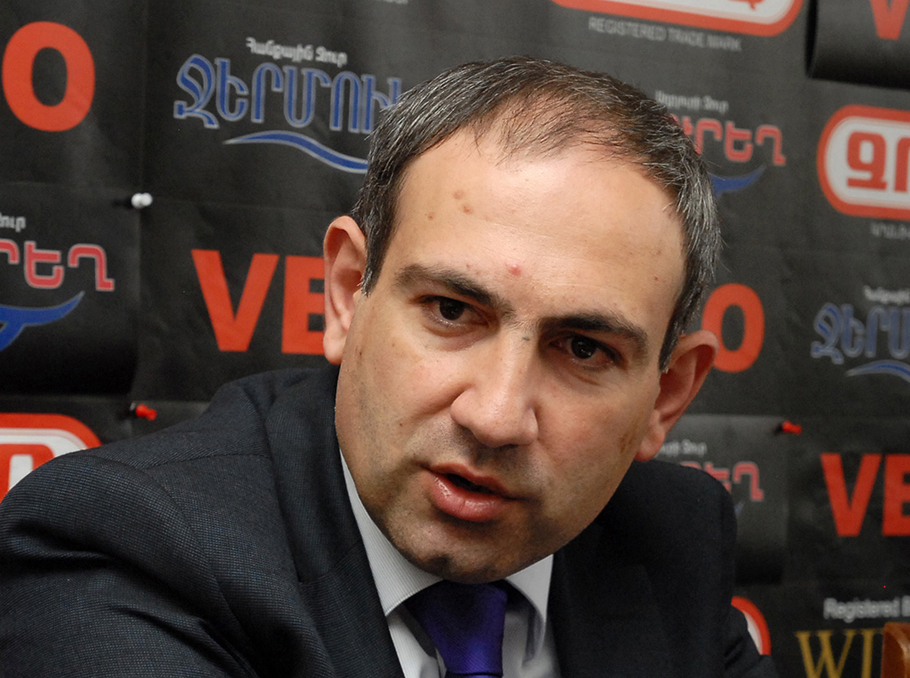
On June 6 head of the ruling Republican Party of Armenia’s parliamentary faction Galust Sahakyan said that there were no grounds for conducting extraordinary elections in the country.
“We always have a choice”
On June 2 Armenian First Deputy Defense Minister David Tonoyan said that “from the geopolitical point of view we are on the right way today.”
Interviewed by “Hay Zinvor” (“Armenian soldier”) newspaper, Tonoyan said:
“External links and orientation are outlined. Cooperating with our traditional strategic partner Russia, we don’t rule out the possibility of expanding cooperation with others too. We always have a choice. There might be other variants too and it allows us conducting a brave and flexible policy. From the geopolitical point of view we are on the right way today. We have the necessary ties with all force centers –the EU and the USA, Iran and China, which is a secure guarantee for suppressing Azerbaijan’s adventurous aspirations.”
• 5 YEARS AGO: JUNE 1-6, 2016
Kocharyan: “Armenia should make conclusions about CSTO”
On June 1 former President of Armenia Robert Kocharyan said:
“It was no secret that Azerbaijan was better armed, but it’s one thing to know and another to face it on a battlefield. The irony is that Armenia, a member state of CSTO with a Russian military base on its territory, was notably poorer armed. The public’s pained reaction is understandable. Everyone wanted to believe that the military alliance with Russia at least would guarantee a military balance, i.e. security of Armenia and Karabakh (parity in the quality of arms was maintained until realization of the agreement between Baku and Moscow, signed in 2011).
Everything turned out to be much more complicated. Obviously, escalation of the conflict is not beneficial for Russia, as it would have to make a hard choice between its duty to Armenia as a mediator and a military ally, and its desire for closer cooperation with Azerbaijan. The new weapons supply to Baku disturbed the balance, making the possibility of such a scenario highly likely.
Why it happened and whether it could have been avoided are the questions that will be disputed, assumed and speculated for a long time coming. Armenia should have prevented realization of the contract at the least, - through limiting nomenclature, or synchronizing the realization with similar supplies to Armenia. There were enough arguments for that. I do not know how actively the authorities tried to do that and why they failed, so I won’t comment. At the same time, we weren’t ready with a number of military equipment items, which we could have purchased without intergovernmental agreements. The rival army has been giving us trouble in nighttime for over two years, because it was accordingly equipped. What prevented us from equipping our army with night vision devices, thermal cameras, night vision sights, communications gear, and individual protection equipment for reserve forces? It isn’t normal when a commander directs the battle with a cell phone, when a platoon post has no night vision sights, or enough armor vests for servicemen of reserve forces. We should fill the gaps immediately, and obviously, it’s already being done. But we should do it on the institutional level, and not in the “all together’ way, as it was in the beginning of Karabakh movement. Volunteers should not go to the front spontaneously, but be directed to units by military commissariats, with their military expertise taken into account.”
According to him, “actions of certain CSTO states are essentially incompatible with our joint participation in a military alliance.”
“Obviously, we cannot change the interests of those countries, but we should make real conclusions for ourselves. We should understand what CSTO is, and avoid high expectations. CSTO is an asymmetric structure, standing on Russia’s military and political interests separately or in connection with those of every participating state. There is no prominent, integrated general interest. What are our mutual military and political interests with Kazakhstan or Kyrgyzstan? It’s naïve to think that joint membership in CSTO can be stronger than Kazakhstan’s established relations with Turkey and Azerbaijan. That is why we should consider CSTO in the context of military, political, and technical cooperation with Russia. That is reality, and we should proceed from there,” he added.
Bundestag’s recognition
On June 2 the German Bundestag discussed and approved the resolution on recognition of the Armenian Genocide.
The resolution not only recognized the actions carried out by the Ottoman Empire towards the Armenian population as genocide, but also pointed out Germany’s historical responsibility in the crime.
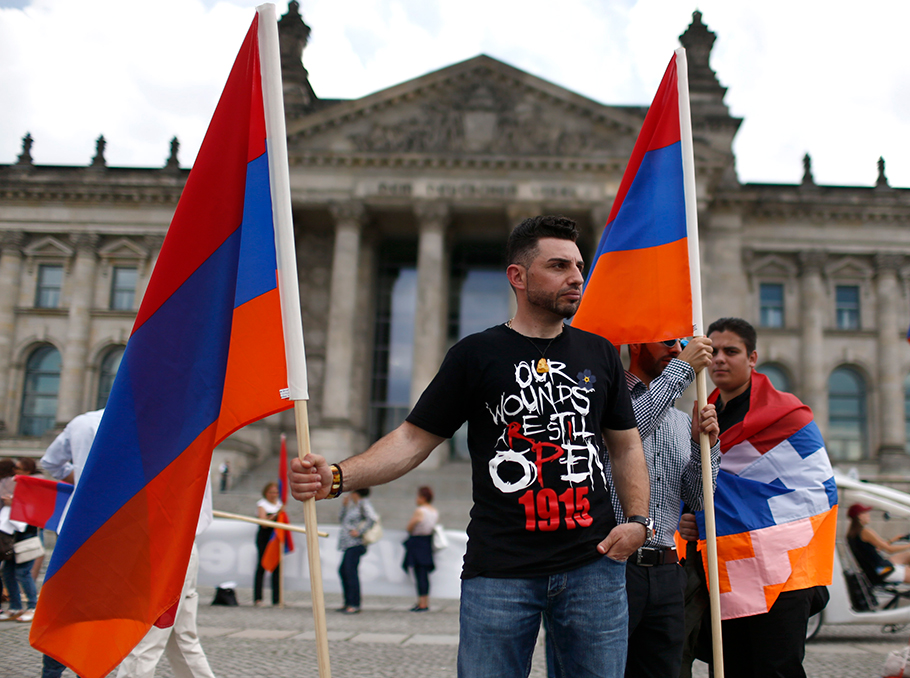
Photo: REUTERS
“The fate of the Armenians is exemplary in the history of mass exterminations, ethnic cleansing, deportations and yes, genocide, which marked the 20th century in such a terrible way. The parliament regrets the shameful role of the German Empire. As one of the Ottoman Empire’s main military allies, it did not try to prevent these crimes against humanity, despite having clear information,” the resolution read.
Armen Gevorgyan’s comeback
On June 6, Armen Gevorgyan, who resigned from the position of Deputy PM in 2014, was appointed Secretary of Armenian National Security Council (NSC).
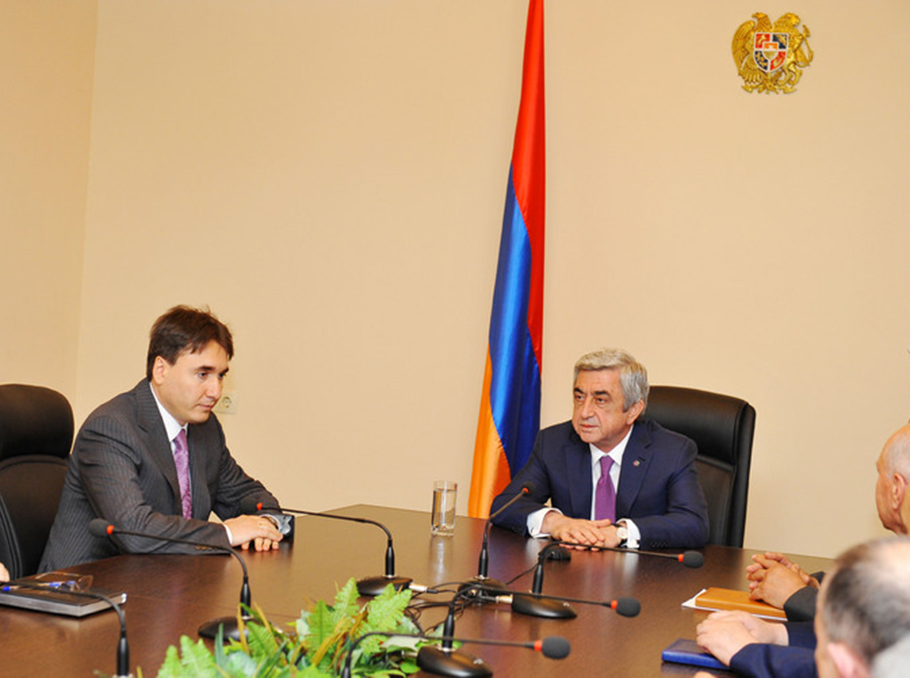
“Armen Gevorgyan has sufficient experience to properly carry out heavy responsibilities of Secretary of Armenian National Security Council. He is an established figure. I know him for almost 20 years of joint work, and I cannot recall a moment he wasn’t diligent in his duty during those 20 years. He is also familiar with the work of the NSC, and he dealt with issues in competence of the service,” said President Serzh Sargsyan.
Ara Tadevosyan
















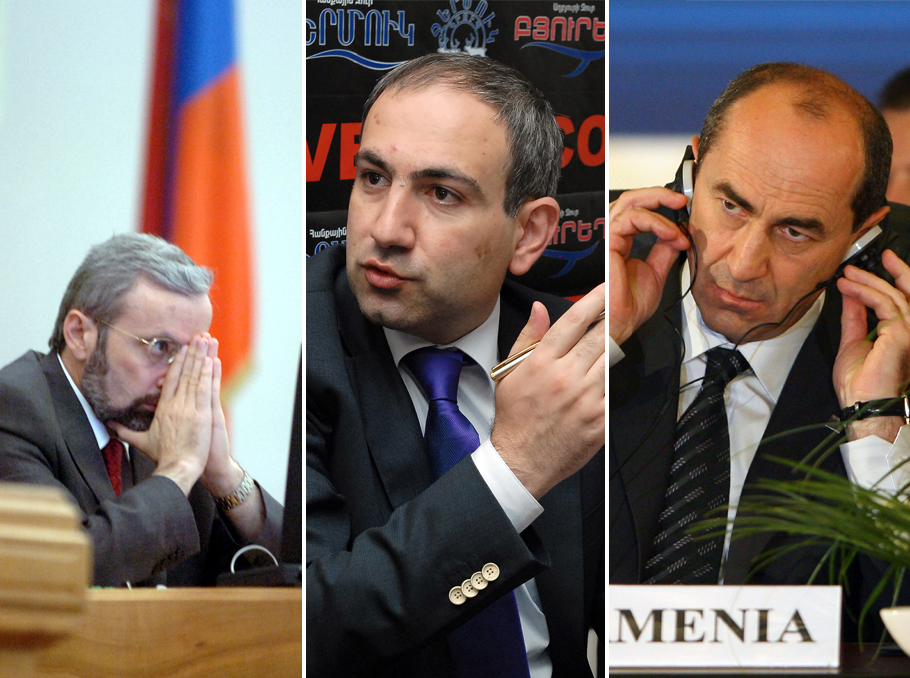






Comments
Dear visitors, You can place your opinion on the material using your Facebook account. Please, be polite and follow our simple rules: you are not allowed to make off - topic comments, place advertisements, use abusive and filthy language. The editorial staff reserves the right to moderate and delete comments in case of breach of the rules.